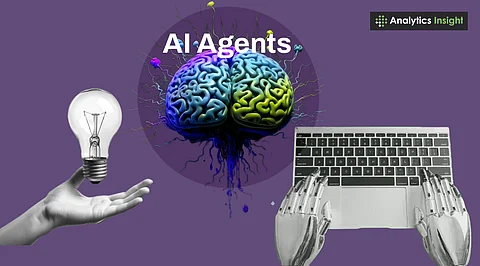

Agents are expanding roles, not replacing them. They handle repetitive tasks, letting data scientists and teams focus on strategy and innovation.
Real-world applications are growing fast. From customer support and research to finance, agents are already transforming business operations.
Future-ready skills matter most. Data scientists who can design, monitor, and guide agents will hold a strong edge in a competitive job market.
The role of a data scientist is changing. For years, the job was defined by cleaning datasets, building models, and producing predictions. Today, businesses expect more from the field of data science. They want systems that don’t just predict outcomes, but act on them. This is where AI agents come in, and why every data scientist should learn how to build and work with them.
AI Agents are more than just models. They are autonomous systems that perceive their environment, make decisions, and take actions toward a goal. Unlike traditional predictive systems that stop at “what might happen,” agents move forward with “what should we do about it?”
A customer support agent who does more than answer. It checks inventory, schedules meetings, and confirms with ease.
A research assistant who turns endless data into clarity, summarizing and shaping insights that matter.
A financial advisor who tracks the market and executes trades aligned with a set strategy.
The power of AI agents lies in their ability to combine reasoning, planning, memory, and tool use, a shift from passive prediction to proactive decision-making.
Also Read: Top Agentic AI Service Providers in 2025
Traditional models tell you the probability of churn. An agent goes further, sending retention emails, suggesting discount offers, or alerting sales teams. This ability to act makes insights immediately valuable, turning data into business outcomes.
The work of data science has long been filled with repetition: cleaning, retraining, reporting. Agents change this pattern by automating entire workflows. What once consumed hours can now be left behind, giving data scientists the freedom to focus on strategy, vision, and innovation.
Modern agents integrate smoothly with APIs, databases, and communication platforms such as Slack or email. For data scientists, this shift requires moving beyond Jupyter notebooks to create solutions that function in real production environments.
A good agent works like a translator. It takes technical outputs and puts them into simple terms that anyone can follow. It can handle follow-up questions, suggest what to do next, and open up analytics to teams without a technical background.
Companies are quickly adopting agent-based systems for customer service, operations, and decision-making. Data scientists who can design, evaluate, and monitor these agents will gain a strong edge in today’s competitive job market.
StyleMart is a growing online retailer. Its small data team used to spend every Monday compiling sales reports, updating churn predictions, and advising marketing on promotions. The process took hours each week.
By introducing an agent named RetailInsight, that workload changed completely. At 6 a.m. every Monday, the agent automatically:
Pulled sales, customer, and inventory data from multiple sources.
Ran churn models and forecast trends.
Generated a PDF report with insights.
Send Slack alerts for low inventory items.
Suggested personalized promotions for high-risk customers.
When managers asked, “What if we increased discounts to 20%?” the agent simulated the outcome and provided projections instantly. The data team didn’t disappear; they leveled up. They moved from weekly reports to becoming system architects who fine-tuned models, set boundaries, and expanded what agents could do. Their energy shifted toward strategy and innovation.
To design agents like RetailInsight, data scientists should build skills in:
AI Agent frameworks such as LangChain or Semantic Kernel for orchestration.
Prompt design to guide reasoning.
Tool integration to connect APIs, databases, and messaging systems.
Memory systems allow agents to learn from past actions.
Evaluation methods to ensure accuracy, safety, and efficiency.
It’s not about becoming a full-stack engineer. It’s about thinking beyond models and shaping entire systems.
AI agents aren’t taking the place of data scientists. With routine work automated and decision-making supported by agents, data professionals can rise to higher responsibilities: designing robust workflows, strengthening decision logic, and guiding systems to behave responsibly.
This moment marks a turning point in technological advancement. The role is evolving from perfecting models to architecting systems that matter. The future belongs to those who design intelligence with impact.
The rise of agents is reshaping what it means to be a data scientist. It’s no longer enough to analyze data; the next step is building systems that act on it. Learning agents aren’t about chasing trends.
It’s about future-proofing your career, expanding your influence, and driving tangible outcomes. The sooner data scientists embrace this shift, the faster they move from being model builders to architects of intelligent systems.
